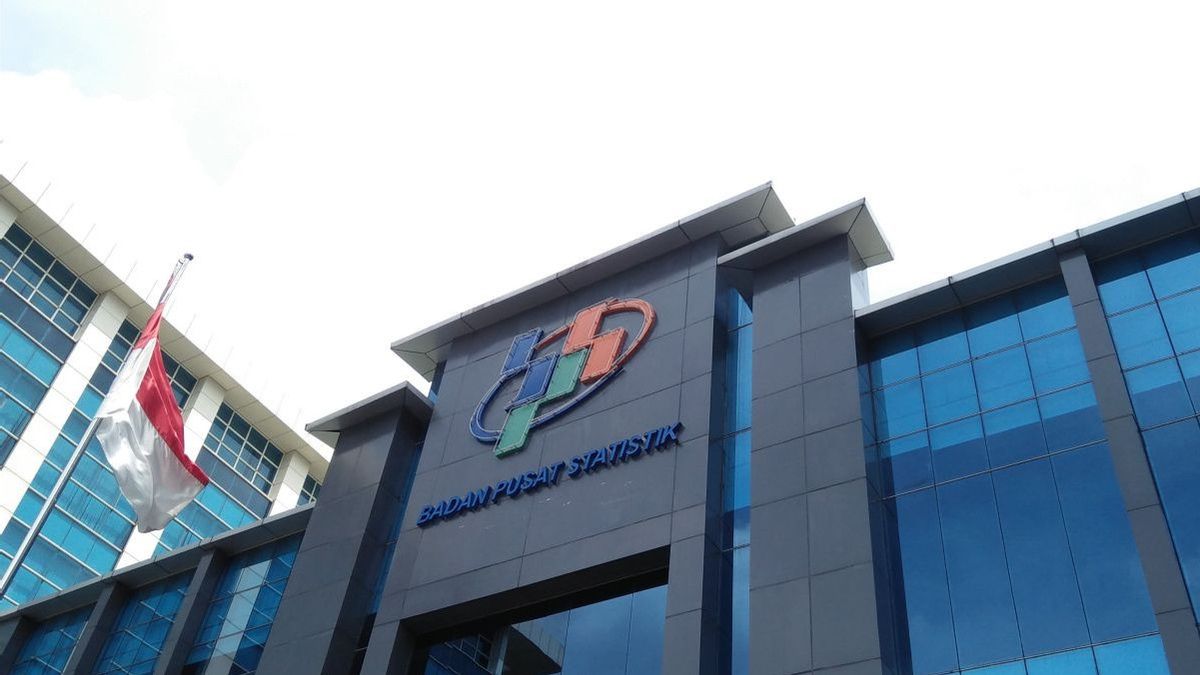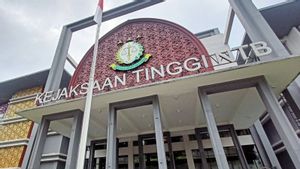JAKARTA - The Central Statistics Agency (BPS) noted that Indonesia's economic growth in the first semester of 2024 remained stable at 5.08 percent.
Deputy for Balance Sheet and Statistical Analysis Moh. Edy Mahmud said that almost all business sectors grew positively, namely the food and beverage industry, basic metal industry, chemical industry, pharmaceuticals, and traditional medicine. Then, the construction sector grew along with the construction of government infrastructure projects.
"Supported by strong domestic economic activity, the Indonesian economy grew stably by 5.08 percent in the first semester of 2024 (ctc)," he said in a press conference, Monday, August 5.
Edy said that in terms of production, the Government Administration, Defense and Mandatory Social Security Business Sector experienced the highest growth of 10.25 percent.
Edy explained that growth occurred in all expenditure components. The expenditure component that experienced the highest growth was achieved by the Consumption Expenditure Component of Non-Profit Institutions Serving Households (PK-LNPRT) at 16.84 percent; followed by the Government Consumption Expenditure Component (PK-P) of 9.08 percent; Household Consumption Expenditure Component (PK-RT) of 4.92 percent.
Furthermore, the Export of Goods and Services Component of 4.73 percent; and the Gross Fixed Capital Formation Component (PMTB) of 4.11 percent. Meanwhile, the Import of Goods and Services Component grew by 5.19 percent.
In addition, Edi said that the IMF in July 2024 predicted that global economic growth in 2024 would remain stable.
The economic growth of developing countries is expected to slow compared to 2023, but is still higher than the global achievement. When viewed according to the Global Manufacturing PMI Indicator throughout the second quarter, it was in the expansionary zone.
"The economic growth of several of Indonesia's main trading partner countries. China's economic growth in the second quarter of 2024 reached 4.7 percent or experienced a slowdown compared to the first quarter of 2024 and the second quarter of 2023. Meanwhile, economic growth in the US grew higher compared to the previous quarter," he said.
Edy said, related to global trade performance throughout the second quarter of 2024, Indonesia was still able to maintain a trade balance surplus, thus extending the surplus period for 50 consecutive months.
SEE ALSO:
On the other hand, the prices of commodities that are Indonesia's mainstay exports are still fluctuating, several commodities have started to show an increase in the second quarter of 2024, such as CPO and coal.
From the domestic side, economic performance in the second quarter of 2024 was supported by maintained domestic activities. This is reflected in the Bank Indonesia PMI which remains strong in the expansion zone, reaching 51.97 percent. Production capacity is 73.7 percent, higher than the first quarter of 73.61 percent.
Edy added that investment realization grew by 22.47 percent and at the same time capital goods spending by the government and imports of capital goods also grew positively.
"People's purchasing power is maintained, as indicated by, among others, the retail sales index which grew by 1.14 percent (yoy) and domestic motorcycle sales by 4.21 percent (yoy). People's mobility has also increased, indicated by the increase in the number of passengers for all modes of transportation," he added.
The English, Chinese, Japanese, Arabic, and French versions are automatically generated by the AI. So there may still be inaccuracies in translating, please always see Indonesian as our main language. (system supported by DigitalSiber.id)
















